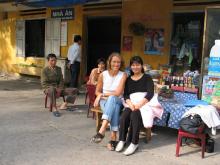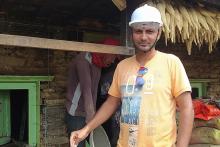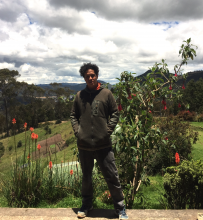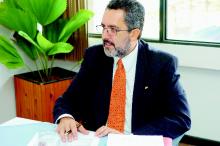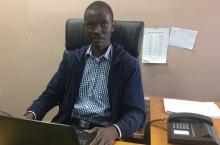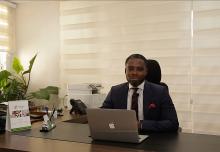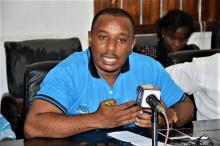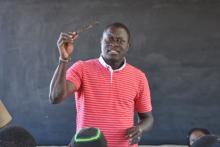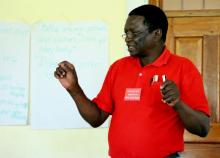Despite being more than 10,000 kilometres apart, Professor Tine Gammeltoft and Danida alum Dr Nguyen Thi Thuy Hanh’s lives and careers are deeply intertwined.
Dr Tedros Adhanom Ghebreyesus, Ethiopia. My first experience of universal health coverage was in Denmark
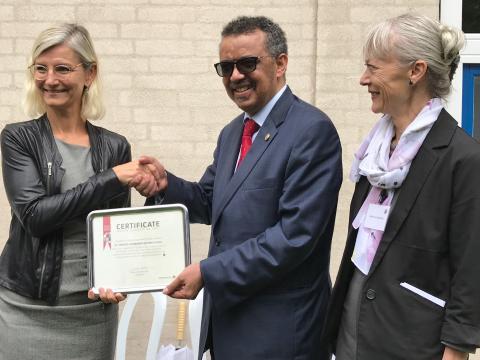
"The time I spent as Danida Fellow was so valuable. My first experience of universal health coverage was in Denmark", said Dr Tedros Adhanom Ghebreyesus, WHO Director-General in his acceptance speech for the Danida Alumni Prize 2017.
The motivation for awarding the prize was read by Ms Anne Christensen, Director Danida Fellowship Centre. Ms Ulla Tørnæs, Minister for Development Cooperation of Denmark presented the award.
Dr Tedros Adhanom Ghebreyesus acceptance speech:
Minister Tørnæs, distinguished colleagues, students, and staff,
Thank you for your kind words.
It is a great pleasure to be back in the beautiful city of Copenhagen, where I spent many happy and productive days as a younger man.
The time I spent here as a Danida Fellow was so valuable. It made me a better scientist, and a better human. It gave me new knowledge and skills that I used to help my own people back in Ethiopia.
In fact, it was here in Copenhagen that I had my first experience of universal health coverage, before I really knew what it was. Because it was here in Denmark that I had health insurance for the first time in my life. The peace of mind that gave me made a lasting impression on me.
I also remember being impressed by the fact that Denmark, even then, had one of the lowest levels of income inequality in the world, and it still does.
I am deeply honoured to be the first recipient of the Danida Alumni Prize.
I agreed to accept this award because I believe so strongly in what the Danida Fellowship Centre stands for, and for what its fellows have been able to accomplish.
I am very proud of what we achieved in Ethiopia. But I did not do it on my own. Reforming a health system can never be achieved by one person acting alone. So although I am proud to accept this award, I would like to accept it on behalf of my people; every nurse, every doctor, every midwife, every pharmacist, every hospital cleaner, every administrator, and the many colleagues I worked with in government to transform Ethiopia’s health system. They are the true heroes.
Ethiopia and Denmark are very different, in so many ways. But we share the common conviction that health is a human right. It is one of the building blocks of safe, fair, prosperous societies.
It is no secret that my top priority as Director-General of WHO is to help all countries on the path towards universal health coverage.
And there are few better examples of universal health coverage than Denmark. Denmark’s health system is the envy of the world.
My friends, do not take it for granted that you can see a doctor whenever you need to. Do not take it for granted that all the medicines you will ever need are available. Do not take it for granted that you will never have to decide between paying for health care and feeding your family.
These are the everyday realities that face millions of people around the world.
That is unacceptable to me. It is unacceptable to WHO. I hope it is unacceptable to you.
That is why I decided to campaign for Director-General of WHO. None of us should tolerate a world in which a mother has to choose between buying medicine and buying food.
Of course, no health system is perfect, and every country has room for improvement. Even in Denmark, you have challenges.
Although income inequality is still low in Denmark, it is rising. The evidence shows that when inequality rises, health suffers.
As in many wealthy countries, you suffer from the diseases of the rich, like obesity, diabetes and heart disease.
But you are not sitting idly by. I commend the Danish government for becoming the first country in the world to ban industrial trans fats in foods. Six other countries across Europe have now followed your example, preventing thousands of deaths from coronary heart disease.
Denmark’s work to promote healthy diets through school food schemes, food labelling and salt reduction is also praiseworthy.
Denmark is also a signatory to the Protocol to Eliminate Illicit Trade in Tobacco Products. This morning I was privileged to meet with Minister Ellen Nørby, and I encouraged her to go one step further and ratify the protocol. We need 11 more countries to ratify the protocol in order for it to come into force. I had a very positive meeting with Minister Nørby and am hopeful that Denmark will soon become one of those 11 countries.
I am also encouraged by the National Action Plan for Antibiotics for Humans launched just last month. The leadership of countries such as Denmark on this issue is essential if we are to win the fight against antimicrobial resistance.
Ladies and gentlemen, becoming Director-General of WHO, I am faced with challenges similar to the ones I faced in Ethiopia, but on a much larger scale. I used to be concerned with only one country—now I have to worry about 194!
But I am firmly convinced that the best thing a country can do for its people is to achieve universal health coverage.
Universal health coverage is based on the belief that all people should be able to live healthy and productive lives, whether they live in rich cities or in poor villages, whether they are displaced or disabled, young or old.
Health is a human right, and all people everywhere deserve to live healthy and productive lives.
Ensuring that all citizens have the same access to a basic level of quality health services is a moral and ethical position that demonstrates serious political leadership.
My personal experience has shown me that it is possible for all countries to achieve universal health coverage. Even at low levels of national income, countries can make progress. Many countries at different levels of economic development have implemented universal health coverage. This demonstrates that universal health coverage poses more of a political challenge than an economic one.
Further, the world has agreed on universal health coverage by including it in the Sustainable Development Goals. Goal 3.8 sets the following target by 2030: achieve universal health coverage, including financial risk protection, access to quality essential health care services and access to safe, effective, quality, and affordable essential medicines and vaccines for all. WHO will help countries to achieve this ambitious goal.
I believe that it is the responsibility of every country to pursue universal health coverage. But countries have unique needs, and there is no one-size-fits-all solution. Every country must find its own path, but WHO will be there with the evidence, experience and technical know-how to help.
We have a long road ahead of us, but we share a common vision for a safer, fairer and healthier world.
I hope that colleagues here at the Danida Fellowship Centre will consider how you can help advance the cause of universal health coverage. Your motto, “sustaining development through research and learning”, is perfectly suited to the historic challenge before us.
On behalf of our shared goal to advance evidence-based sustainable development throughout the world, I humbly accept this award, with profound thanks.
